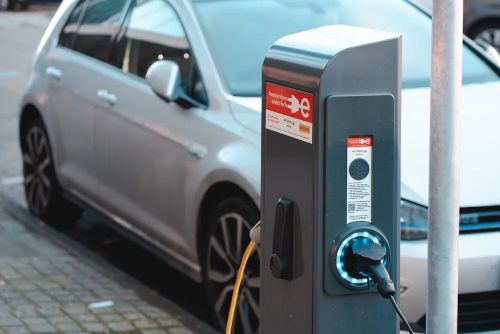
Real Estate Development with EV Charging The Electric Vehicle (EV) Charging Imperative for Real Estate
As the electric vehicle (EV) revolution gains momentum, real estate developers must adjust to the increasing demand for charging infrastructure. With global EV sales projected to surpass 14 million units by 2024 and expected to account for nearly 60% of new car sales by 2030, real estate properties must evolve to accommodate the growing number of EVs on the road. In the United States, the Bipartisan Infrastructure Bill has allocated $5 billion for EV charging, but the actual cost to meet the demand for 100% EV sales by 2035 is estimated at $87 billion. This gap presents a unique opportunity for the real estate industry.As a leading EV charger manufacturer in China, LiCB Charge offers reliable AC and DC electric vehicle charging stations along with comprehensive charging solutions.
Real estate owners and developers are already beginning to realize that integrating EV charging infrastructure is no longer a luxury but a necessity. Properties—whether residential, commercial, or retail—will soon be expected to offer charging stations, particularly as commercial EV fleets, such as medium- and heavy-duty trucks, become more widespread. As the demand for these charging solutions increases, developers will need to create charging hubs that cater to both personal EVs and commercial vehicles.
Investing in EV charging infrastructure can significantly boost property value and generate additional revenue streams. For residential properties, the presence of EV chargers can increase rental rates and resale values. Renters and buyers are increasingly prioritizing sustainability and convenience, and properties offering EV charging will attract high-quality tenants. For commercial properties, the financial benefits are substantial. Studies show that EV chargers can generate up to $0.50 per kWh in revenue, with commercial properties earning $1,500 to $3,000 per month per charging station.
In addition to boosting financial returns, integrating EV chargers enhances tenant satisfaction and retention. As more people adopt EVs, tenants will actively seek properties that offer convenient charging options. Properties equipped with smart features such as real-time reservations, automatic payments, and minimal wait times will stand out, leading to higher tenant satisfaction. For commercial properties like office buildings and retail centers, EV chargers also align with businesses’ sustainability goals and can attract more customers.
The most significant growth opportunity for real estate developers lies in the rise of commercial EV fleets. As logistics companies transition to electric trucks to reduce emissions and costs, the demand for dedicated charging hubs will grow. These hubs will need to include high-power DC fast chargers and enough space for large vehicles to maneuver. Integrating renewable energy sources like solar panels and offering multi-purpose facilities that include maintenance services and logistics centers can maximize profitability.
While challenges such as high upfront costs and grid capacity concerns exist, real estate developers can mitigate these through partnerships with utility providers and by leveraging government incentives. Additionally, opting for charging systems with remote monitoring can help reduce maintenance burdens and improve system reliability.
In conclusion, integrating EV charging infrastructure is essential for real estate developers to stay competitive. With the growth of EV adoption and commercial fleets, charging stations will become an integral part of properties. Investing in scalable, sustainable solutions now will not only increase property value but will also future-proof real estate investments.Know more about Google SEO Directory
© 2024 Crivva - Business Promotion. All rights reserved.